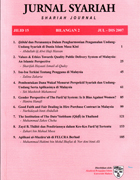We are pleased to present the first in a series of articles by John R. Thomas, Jr., a lawyer at Gentry Locke [Editor’s note, 3/26/19: He has since moved to Haley, Hafemann, Magee and Thomas] who represents whistleblowers in a variety of False Claims Act cases. He writes about how whistleblowers can do the right thing and protect themselves in the process.

As readers of Retraction Watch are well aware, scientific misconduct is a problem for a number of reasons. Science builds upon itself; unfounded scientific results lead to wasted research efforts, ineffective medical therapies, and faulty public policy conclusions. Even one fraudulent paper can have profound effects, such as fueling an anti-vaccine movement.
Research misconduct also erodes public trust in science and endangers ongoing public funding of scientific research. Following the recent discovery of fabricated AIDS research at Iowa State University, Senator Grassley addressed the issue before the U.S. Senate:
Continue reading So you want to be a whistleblower? A lawyer explains the process





